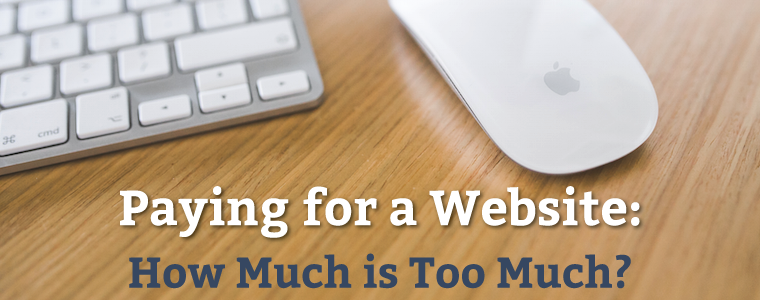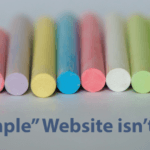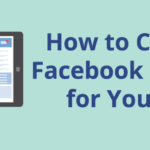
Not long ago, a friend called to ask what I’d charge to set up a website for her husband. Since there are no friends in business, I referred her elsewhere, letting her know upfront that my colleagues’ rates might be quite a bit higher than her anticipated budget.
Despite my warning, my friend sent inquiries to several designers and developers, expecting a lot of features for very little money. She was frustrated when she didn’t get many responses and the ones she did get contained some variation of, “Sorry, but I’m not the best fit for your project.”
“What am I doing wrong?” she asked. “All these people want more money than I’m willing to pay.”
The Problem with Bargain Shopping
Bargain shopping is a good thing if you need a pair of jeans, but not so much when you need a professional service. Let’s look at an example.
Imagine that you have a dental emergency and need a cavity filled. There are two dentists in your area:
Cost: $200

Cost: $35
Which dentist would you call? The one that seems professional (we will assume the logos are representative of each dentist’s website) and costs more, or the one that looks like a circus but might cut you a deal on some worms while you’re there?
This is important for two reasons. First, when you are deciding what you can afford for your own website, keep in mind that cheaper isn’t always better.
Second, you don’t want to hire someone whose website looks like Bob’s Bargain Dental -n- Bait Shop no matter how cheap the work is.
I think we can safely assume that the first dentist probably provides better quality. I have no desire to let someone touch my mouth with a drill for less than I’d pay for a pair of sneakers.
A Word on Costs
As I’ve mentioned before, the cost of a website can vary wildly depending on the functionality you need, who you hire, and a number of other factors. Websites aren’t really like cars, appliances, or any tangible good you might purchase in a store - the creation of a site is a service and not a product.
If you want a website just because it seems like a fun thing to do, it’s understandable that you wouldn’t want to spend a lot of money. The good news is, you don’t have to!
There are plenty of free or cheap platforms available for people who want to start a blog or website. Watch TV for awhile and you’ll see all kinds of commercials catering to those to want a website without investing a lot of cash.
If, though, you are running a business, whether it’s a blog that earns money, an online company, or even a physical business of some type, your website is (in most cases) the most important form of marketing you could possibly use.
Those of us who provide services for those businesses have worked hard to be able to (1) listen to what you need and (2) develop a plan to meet those needs.
Factors in Deciding What to Pay for a Website
1. How much money can you earn with a well-designed site that functions as it should?
It’s not always easy to estimate how much a website will increase your earnings, but let’s say having a website would help you gain $25,000 a year in revenue.
A website can generally go 2-3 years (sometimes more) before needing a refresh, so if the cost is $10,000 and you can earn $75,000 in its lifespan, isn’t that a pretty good deal? I’d pay $10k tomorrow if I knew I could turn it into $65,000 more in my pocket in a couple of years.
Caveat: No one can or should promise you exact figures because it’s impossible to know for sure.
That said, a web professional should be able to provide examples of increased revenue from past projects to give you an idea of what’s possible.
2. What does your website really need?
Don’t get too focused on sliders and animations and fancy effects. I hate to tell you, but none of that stuff is important.
What matters most is your goal - whether it’s getting visitors to make a purchase, call for an appointment, or request a quote. Every page of your site should be designed with that goal in mind.
3. How much can you afford?
Notice that I didn’t ask how much you’d like to pay, because that’s a totally different thing.
If you don’t think you can spend much money for a website, you obviously don’t expect to gain many benefits from it. So why do you want one in the first place?
4. What will it take to get what you want?
If you want the next Facebook, you can’t have it for $1000. If you want custom functionality, you can’t get it from your friend’s teenage daughter who is learning to build websites in a class at school.
It’s important to prioritize what your website needs. If you can’t afford everything you want right now, you can always break up the project into phases. Get the basics first, then plan the other features around your budget as you can fit them in.
5. Who can you trust?
When interviewing potential designers or developers, you don’t need to know a bunch of tech jargon to decide who’s capable of doing the work.
Here’s what you really need to know:
- Did s/he ask about my goals? If not, that’s a red flag. Run away.
- Is his/her pricing in line with what I can afford? If not, ask for a referral or move on.
- Is his/her past work similar to what I need? ALWAYS ask to see examples of sites s/he has built.
So How Much is Too Much for a Website?
Again, if we’re remembering that websites are a service, not a product, the cost really depends on what you need, how quickly you need it, and how much knowledge and skill is required to make it happen (not necessarily how many hours).
In previous articles, I’ve given my opinion that a blog shouldn’t cost more than a few thousand dollars unless you have a huge audience and need very specific functionality. For example, if you’re adding a membership component, forums, etc. the price can rise quite a bit.
For a business website, it’s hard to give an estimate because there are so many possibilities. If you need a 5-6 page website with a contact form and no other features, you can probably get something decent around $5-10k. If you need more than the basics, though, expect to pay far more.
If these numbers shock you, you aren’t thinking about what you want your website to do for you or how it will help you earn money.
As I said before, if it’s not going to earn you anything, why on earth would you pay for it? Go get some business cards instead.
But if you want a website because you realize how powerful the internet can be and how much you stand to earn, by all means, be prepared to pay whatever it takes. It’s worth it, I promise.











Dom
Just off to put my prices up…
Seriously, though, some great points. I’m always nervous about telling people prices: I know they are going to think it’s too much. But then I’ve seen what happens when people try to build something for themselves (although not every DIY job is a write-off).
Never really thought of selling it from the “cost vs reward” point of view. I’m going to have to get some figures together and add that to my pitch.
Having some examples to back up what you’re saying is always good. Getting a referral is even better.
Value-based pricing is the way to go for sure… I can put together a custom theme in a couple of hours, but (1) it’s probably not meeting anyone’s goals and (2) I can only work that fast because I’ve done it so many times. I used to price hourly and I was punishing myself for having the skills to work quickly - it’s far better for everyone when they understand what they’re getting and how it will benefit them vs. calculating how much time it takes me to do it.
After years of building websites, I still get a little nervous every time I send out an estimate. I try to give ballparks during initial calls/emails just so people aren’t shocked, but you never know what someone expects until the price is out there. It pays to be confident, though, and to know that what you’re providing is worth the cost to them. It does get easier, I promise!
Dom
That sums it up perfectly. Of course I’m faster now than I was when I started doing this four years ago - the upshot being that you get a much better product with more functionality because I don’t have to mess around remembering how to create a child theme, or research a contact form plugin etc.
Lara Littlefield
This was a really informative post for newcomers to producing websites or apps with a consultancy, agency, or freelancer.
For customers, it’s important that information like this is commonly understood so that a situation where 6 months are wasted for a $500 website do not occur.
On the provider side, it can be hard to start out on your own with pricing, but you won’t learn if you don’t try. Mistakes are simply learning experiences, and you can do better business the next time. ?
I wish I had kept a record of all the different rates and pricing strategies I’ve used over the years… I’m pretty much an expert at what doesn’t work. It’s definitely trial and error, especially when you’re just starting out as a freelancer! I wish I could speak individually to the newer designers and devs out there and let them know that “bottom of the barrel” pricing doesn’t help anyone - I did that for way too long.
John Locke
Great post Andrea. Positioning the investment value of a project versus the lifetime value is the logical way to go. Selling hours for money is what most people do, however, because every other industry follows the hourly model. It’s hard to unlearn that habit.
DIY-ers often try to wrangle a site by themselves to save money, but they cost themselves weeks or even months of frustration. The ease of paying someone else to build a website, that looks and functions 100x better than they can do on their own is another selling point to consider.
You know, I actually said something along those lines recently. A former longtime client (who should be very familiar with my rates) asked me to create a landing page with a very short turnaround time. When she got the invoice, she was kind of mad and was like, “How long did it take you to do this?” I told her, “The question is, how long would it have taken YOU to do this?” She paid the invoice without another word. 😀
That’s the whole thing in this business - we are doing things that are beyond the average person’s skill set and helping businesses reach their goals. That’s worth a lot in the online world we live in! Getting to see the difference in sales numbers after someone pays for a redesign or a new site is one of my favorite things. It’s amazing what a well-built site can do.
Jason
Thanks for this article! I’m in the process of brainstorming an email drip series for SMB’s on how to put your website to work. So I will definitely be linking to this on my talk about pricing/ROI stuff. I love what you said to one client “How long would it have taken you?” great point.
I talk to a lot of business owners who know they want a website but have literally zero expectations for what it should be doing for them. It’s no wonder they are flabbergasted when they start getting quotes for a web project! Going over ROI is so, so huge - sounds like your email campaign is much needed!
Adam Fout
Thanks for this article—you’ve done an excellent job of explaining one of the biggest disconnects between clients and developers. Many clients just don’t know what a website should cost, and they end up with a figure that is far below was a great site costs.
Do you think this is because free website creation sites are putting an anchor price in people’s minds of $0? Or is there another reason you’ve seen in your experience?
Hi Adam,
I definitely think the “Hey, anyone can build a website” ads aren’t helping, but I also think people have a hard time understanding what a website does and why they need one. A lot of designers and developers seem to skim over things like goals, conversions, etc. and business owners don’t see the value, thus failing to realize how much goes into a quality site that benefits them beyond just having a presence online.
James Montgomery
Awesome article! I love the dentist analogy and imagery, really helps drive home the point that you get what you pay for.
We wrote a similar bit and designed an infographic to really help people understand what goes into that professional price tag. Feel free to check it out here https://99robots.com/how-much-does-a-website-cost/
Thanks for sharing! I LOVE infographics and I’m sure that will be really useful for people who visit this post. 🙂
Mariah
I’m not going to lie when I say I’ve read this post like…..5x already. It’s very refreshing to read a post with confidence pouring out of the writing. I just started freelancing on my own and pricing has always been a bit of a hiccup, for myself and for other design companies I’ve worked for, just because there’s nothing to tell you exactly what your work is worth. I find myself coming to your blog and reading or re-reading articles on various topics…..just because it brings my brain back to the forefront. So, just wanted to say thank you for secretly helping me keep my sanity. Your posts are super informative for others in the field.
Thanks so much for the kind words, Mariah! I’m glad you find the content helpful. If there’s anything in particular you’d like to read about, let me know and I’ll try to get a post together. 🙂
Mariah
I’m really interested in the services you offer as a developer. I’d love more content geared towards collaborating with designers, or tips on how to market yourself that way and maybe help people understand the difference. I’ve read through your testimonials and people mention you helping them troubleshoot and giving them sessions on certain developing issues. I’d love you to go into detail about those services, how you found yourself justifying them with cost, marketing them, or just plain talking about them. I’m always curious to see people’s paths and how they got to where they are, especially in creative/tech fields, since there really is no cookie cutter direction.
Oooh, some great ideas here! Really appreciate those suggestions. I’m making a list now and will look at doing some “case study” type posts later this year.
Thanks for this article. It’s kind of reassuring in a way. I’m always blown away by how little value some clients see in their websites.
I’ve tried value based billing before and have run into issues when it comes to managing client expectations. I had one client for example which asked for a “revision” that took me over 20 hours to complete. It was a completely new feature that was nowhere to be found in the contract! This client became upset when I told them I had to bill separately for this. They told me they were under the impression that the contract rate included anything they wanted and started complaining that the project went over budget. I’m hoping this was an isolated incident.
I think part of the trouble is clients like this are under the impression that we wave our magic wands to make this stuff happen as that’s what it looks like on TV. They have no frame of reference either. They’ll see you change a color in a few seconds, then think you can customize a plugin in the same amount of time.
I haven’t given up on value based billing yet though.
When you bill based on value, how do you handle scope creep and revisions? Do you have any tips on managing wild expectations?
I’ve revised my contracts many, many times over the years, and I doubt that will ever slow down. (Basically when I learn a lesson the hard way, I alter the contract to prevent that problem in the future.)
Right now, when I send an estimate, I list every single element individually and assign a cost to it. For example, I have a base price for development, and that line item lists exactly what’s included (blog archive, single posts, normal page template, CSS for each, and mobile responsiveness for each). Other templates or features are listed out separately and are painfully specific. That way when someone suddenly wants a new feature or separate template, it’s hard for them to argue that it should have been included in the price.
My contracts also list the number of revisions allowed - I force them to be submitted in “rounds” so I don’t get 40 emails with one nitpicky change each. After two rounds, extra rounds of revisions are billed at a certain amount per round. That cuts down drastically on the number of requests I get. It’s a little different for me, though, because I do dev only - I’m getting a mockup that has already been approved and signed off on, so it’s rare that someone wants changes (and is willing to pay for them, that is).
Really helpful! I should probably get more specific with my project outlines.
Mariah Magazine
Myles,
You explained the situation so perfectly. “I think part of the trouble is clients like this are under the impression that we wave our magic wands to make this stuff happen as that’s what it looks like on TV. They have no frame of reference either. They’ll see you change a color in a few seconds, then think you can customize a plugin in the same amount of time.” — I couldn’t have said it better myself, I can absolutely relate.
Andrea, awesome response, that might help a lot in cases like this!
I think one of the main problems stems from people not understanding the internet, or how websites work, so it’s hard for them to understand the value behind something.